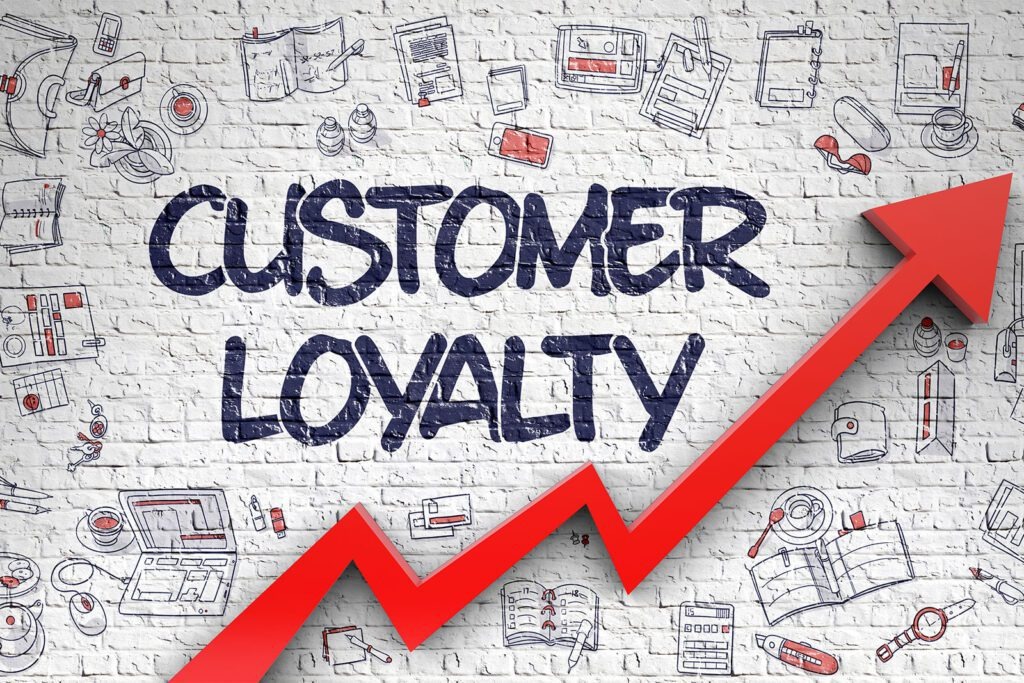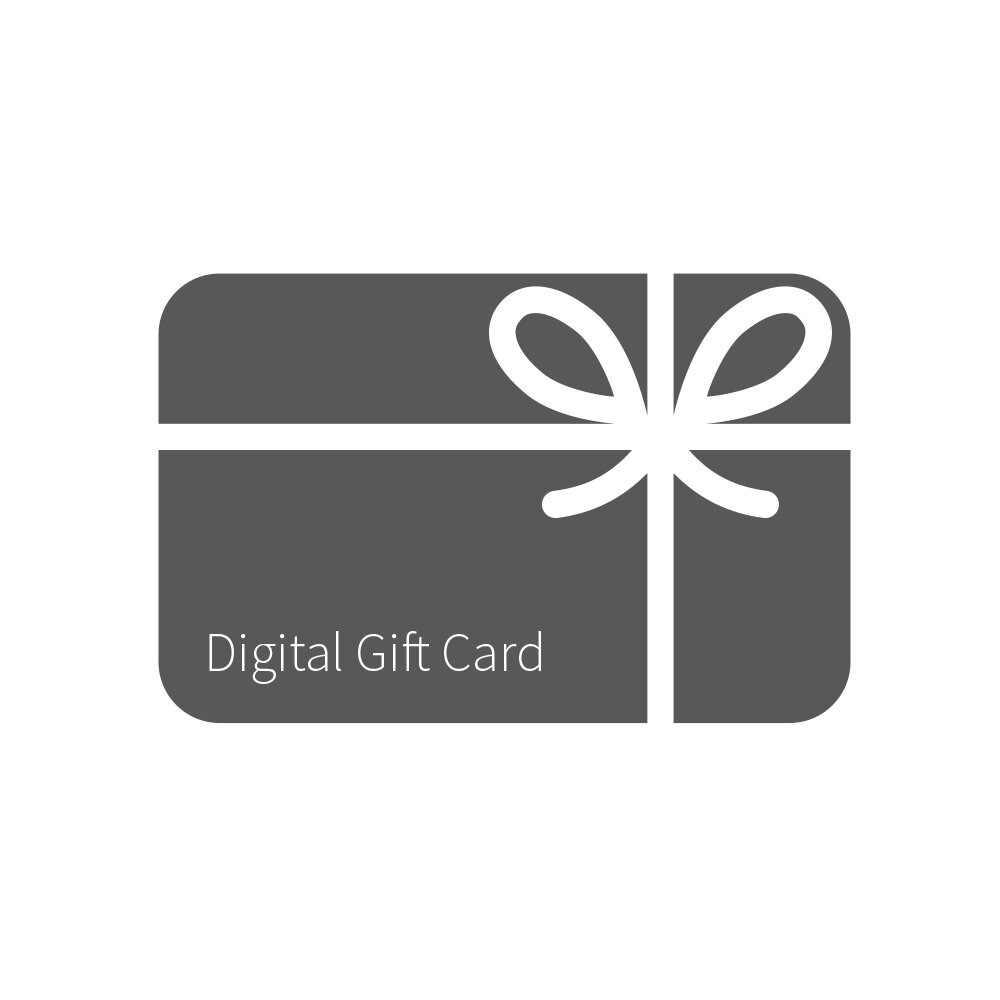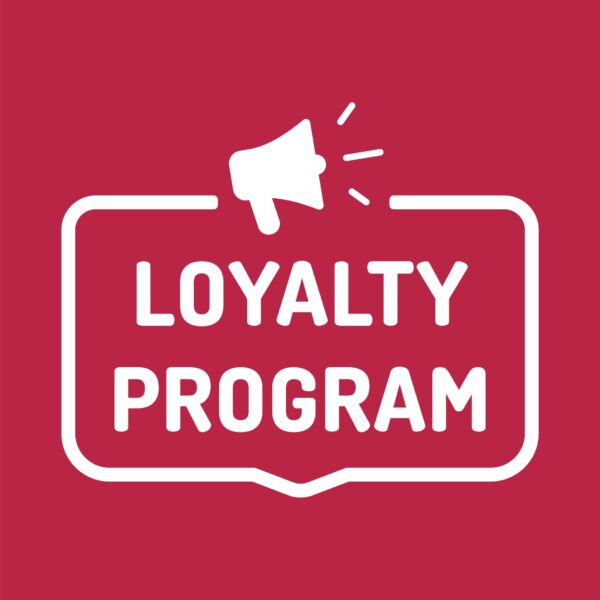B2B Loyalty Program Can Accommodate More Than Just Customers
B2B loyalty programs are as powerful as their B2C counterparts, with the primary difference being the marketing approach. This blog will share crucial insights to help you build a robust B2B Loyalty Program for your customers. and discuss how understanding loyalty programs can amplify the effectiveness of employee recognition programs.
Does a golden rule exist for customer and employee retention?
Everyone appreciates a great experience, whether as a customer or employee. When customers have memorable experiences, they share data, spread the word, and return for future purchases. This means you’re on the right track. Similarly, employees who feel valued and recognized stay engaged, motivated, and go the extra mile. They can even become brand ambassadors for your company.
Recent research shows that 84% of B2B organizations use a customer experience model. This underscores the need to manage both external and internal stakeholders effectively. Key to any organization’s success, these efforts help combat competition, address rate differentials, and overcome switching barriers. Many companies are now investing in B2B loyalty programs that leverage top technologies. These programs aim to enhance relationships with suppliers, buyers, and channel partners while keeping employees motivated, aligned, and loyal.
The Rising Demand for an All-In-One Loyalty Program Approach
Companies now understand that a loyalty program is not just a tool for customer retention but also a strategy for employee engagement. Modern B2B loyalty program technologies are becoming more comprehensive, integrating customer-focused rewards with employee recognition initiatives.
By doing so, businesses develop a loyalty ecosystem that not only keeps its customers coming back, but makes its employees more invested in their jobs and the company’s success. As you think about creating or enhancing your loyalty program, think holistically: What will make it unforgettable to your customers? What will make it rewarding to your employees?
What is a B2B Loyalty Program?

You should establish reciprocal brand partnerships with the companies you sell to. B2B customer loyalty programs are powerful ways to engage and recognize employees. These programs feature distinct elements and loyalty logic. They offer customer and employee retention solutions, keeping all stakeholders loyal and engaged. Forrester Research predicts the B2B e-commerce market will reach $1.8 trillion by 2023. Companies aim to expand this market share by retaining clients and focusing on employee recognition incentives.
Understanding the Differences Between B2B vs. B2C
While both B2C and B2B loyalty programs aim to foster customer loyalty, they differ significantly in their approaches. B2B programs are tailored to the unique needs of business clients and emphasize value and relationship management, whereas B2C programs focus on consumer engagement through accessible and scalable reward systems. Understanding these differences can help businesses design more effective B2B customer loyalty program strategies for their audiences.
Understanding the Challenges in the B2B Market
In a business-to-business scenario, keeping current clients and employees can be more profitable than obtaining new ones. That’s why adding a component to your B2B loyalty program is more than just an option—it’s necessary. In this space, acquiring new customers is not only more time-consuming but also more expensive than keeping your current talent and clientele.
Other B2B Loyalty Marketing Considerations Include the Following:
- A longer, more formalized buying process: This often means that employees involved in these transactions require a deeper level of engagement and recognition to stay motivated.
- More time focused on long-term relationships: Both with clients and employees. Recognition programs can help nurture these relationships.
- Larger but fewer deals: Each deal often involves multiple stakeholders, including employees who must be recognized for their contributions.
- Dependency on consumer trends indirectly influences demand: Understanding these trends can help tailor recognition and rewards accordingly.
- More complex buying decisions: Employee recognition can motivate those involved in these intricate decision-making processes, boosting morale and productivity.
B2B Loyalty Program Highlights
B2B customer loyalty programs are vital to your overall strategy for client retention and growth within existing accounts. This section discusses the key components to making them a success. The highlights we focus on are usable for B2B customer retention, in an employee recognition program, or as part of your overall customer engagement strategy.
Whether you are trying to incentivize your workforce, captivate your consumer base, or increase your stickiness with clients, having a much better understanding of the strategy behind these components of B2B loyalty programs is essential.
| CATEGORY | TOP HIGHLIGHTS |
| Employee Recognition | Real-time Recognition: Instantly acknowledge and reward employee achievements. |
| Highly Scalable: Built to accommodate growth from hundreds to millions of users. | |
| Multi-Channel Access: Access the platform via mobile and web, and integrate it with enterprise systems. | |
| Advanced Analytics: Utilize sophisticated hierarchical analytics to measure program impact. | |
| Compliance-Ready: Built-in compliance checks to ensure your B2B customer loyalty program adheres to legal and company policies. | |
| Consumer Loyalty | Omni-Channel Engagement: Seamlessly engage consumers across all touchpoints. |
| Dynamic Segmentation: Target consumers with precision using real-time data analytics. | |
| Multi-Channel Access: Access the platform via mobile and web and integrate it with enterprise systems. | |
| Brand Customization: Tailor the look and feel of your B2B loyalty program to align with your brand identity. | |
| Instant Win & Sweepstakes: Gamify the experience with instant wins and sweepstakes options. | |
| Client B2B Loyalty | Multi-Tiered Programs: Customizable B2B customer loyalty programs to cater to different partner needs. |
| Automated Reporting: Auto-generate reports for performance tracking and ROI measurement. | |
| API Integration: Easily integrate with CRM, ERP, and other enterprise systems. | |
| Multi-lingual Support: Advanced localization for global reach. | |
| Prepaid Card Management: Visa network-approved, offering flexible reward options. |
The Five Most Popular B2B Loyalty Programs

At a time when customer expectations are ever-evolving, and competition is fierce, loyalty programs have emerged as a powerful strategy for long-term success. Companies must consider a portfolio of B2B customer loyalty programs designed to address these changes and look toward various solutions. Solutions can be tailored to fit the unique requirements of their business.
From “Learn to Earn” programs focusing on customer engagement through educational challenges to more straightforward “Sell and Earn” initiatives aimed at driving sales. Below are five popular B2B loyalty programs that showcase a diversity of opportunities to drive success.
1. Learn to Earn
Objective: A challenge-based program to encourage specific customer actions.
2. Sell and Earn
Objective: Direct cash incentives for selling products commonly used in the travel industry.
3. Learn, Sell, and Earn
Objective: Dual system rewarding both educational participation and sales.
4. Partner Loyalty Program
Objective: Custom B2B loyalty program targeting various business partners.
5. Employee Recognition
Objective: Understanding the critical role of employee recognition in B2B loyalty programs.
Digital to Tangible Recognition Rewards

At this point, we’ve covered the why behind the need for a B2B loyalty program. Now, it’s time to focus on some of the reward options that make it more appealing to your audience. What kind of rewards resonate with your staff? Do you know all the options available?
Digital Rewards and B2B Loyalty Programs
First, consider Digital Rewards. In today’s digital age, reward and incentive options like e-gift cards, digital experiences, or online course subscriptions offer immediate gratification. How would instant access to a digital bookstore or a premium streaming service impact your employee’s engagement? Digital rewards are often customizable and easily distributed, allowing you to reinforce your brand and corporate culture.
Next, let’s consider Prepaid Cards. Offering flexibility and freedom of choice, prepaid cards are universally accepted. They can be co-branded to reinforce your company’s messaging and support multi-currency options. Imagine the excitement of receiving a prepaid card that can be spent anywhere, anytime.
Tangible Rewards and Loyalty Recognition Programs
On the other hand, physical rewards should not be looked down upon regarding B2B loyalty marketing. Although online rewards may be easy to receive and redeem, something physical provides a tangible aspect to rewards.
Online rewards would consist of virtual gift cards sent to a recipient’s email inbox, often holding a small amount, such as $5 or $10, to be spent natively on a site or app. Physical rewards include tangible items or gift cards that must be shipped or delivered to a person’s home. An example of a physical reward would include a branded item or a $100 gift card to an Apple Store.
Have you considered exactly how a solid, quality piece of technology could significantly improve your employees’ everyday lives? On a surface level, there’s a theoretical argument that buying someone something they can see and touch can make them feel like they’ve received something ‘tangible’ and mean you appreciate and value their effort.
What factor determines the right blend? The answer lies in knowing your workers and understanding what motivates them. Are the candidates tech-savvy individuals who would prefer digital prizes or extensively choose physical prizes? Are they somewhere in between?
As a B2B loyalty program, every variation of reward configuration is made, so you must make your own choices. Because of that, a wide range of rewards benefits different preferences and gives a lively, reasonable prospect.
Measure the Effectiveness of B2B Loyalty Programs is Important
After engineering and launching a compelling B2B customer loyalty program, evaluating its effectiveness is crucial. Understanding which key metrics indicate your program’s success is essential. You must ensure a high return and adjust your strategy based on data.
Professional programs have consistent elements that can be tested reliably. Depending on the goal—whether it’s employee recognition, increasing interest through learn-to-earn, boosting sales with sell-and-earn, or a combination of these—key metrics can validate the program’s effectiveness.
Frequently Asked Questions About B2B Loyalty Programs
1. What’s a Loyalty Program?
This type of program utilizes B2B loyalty marketing strategies designed to incentivize repeat actions (typically purchases). Companies have many options on how to persuade program participants, including free products, discounts, and similar motivators.
2. What’s the Difference Between B2B and B2C Loyalty Programs?
Typically, the two main differences involve the target audience and the incentives or rewards offered. For example, a B2B loyalty program would typically drive participants (businesses) to make bulk purchases or take advantage of volume-based discounts. A B2C loyalty program usually offers participants (individuals) free samples or single-product discounts.
3. What Is the Difference Between B2B and B2C Personas?
The main difference involves defining each group’s needs. For example, B2C personas often focus on a customer’s individual and personal desires and needs. However, forming B2B personas requires focusing on a person’s role within a company while also zooming out to understand a company’s needs.
4. What Is B2B Brand Loyalty Marketing?
This term means marketing strategies a company uses to encourage its business customers to remain repeat buyers. It focuses on maintaining long-term customer relationships.
Ready to Elevate Your B2B Loyalty Program?
You’ve explored various loyalty programs and their key performance indicators. Now, it’s time to take action. Don’t leave your program’s success to chance. Leverage your program intelligence partner’s expertise to enhance your program. Whether launching a new program, overhauling an existing one, or analyzing data for insights, All Digital Rewards is here to support you every step.
Contact us today for a personalized consultation, and let’s build a B2B loyalty program that drives real results.
The Ezeprepaid™ Visa Prepaid Card and Ezeprepaid™ Visa Virtual Account are issued by The Bancorp Bank, N.A.; Member FDIC, pursuant to a license from Visa U.S.A. Inc. Purchase, acceptance or use of the card constitutes acceptance of the Cardholder Agreement and Virtual Accountholder Agreement. The Visa Virtual Account may be used for electronic commerce, mail order and/or telephone order transactions everywhere Visa debit cards are accepted. The Visa Prepaid Card may be used everywhere Visa debit cards are accepted. The Bancorp Bank, N.A. does not endorse or sponsor, and is not affiliated in any way with this offer.




